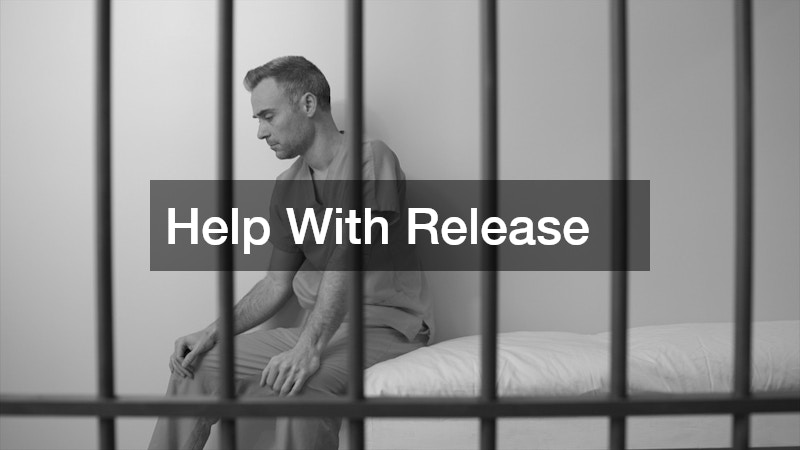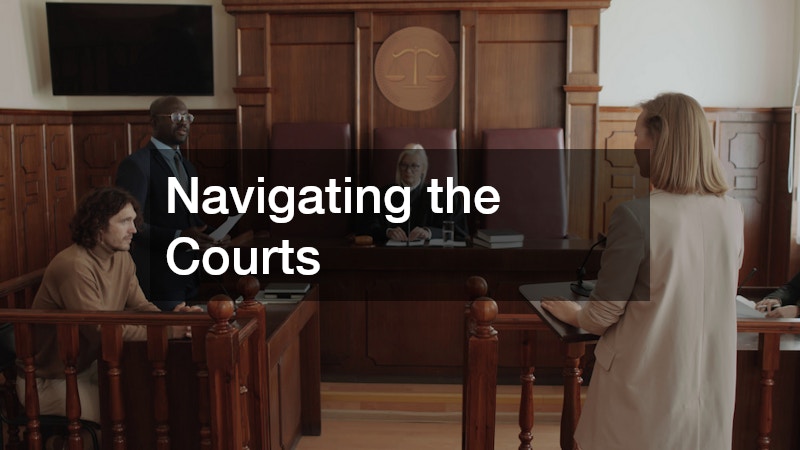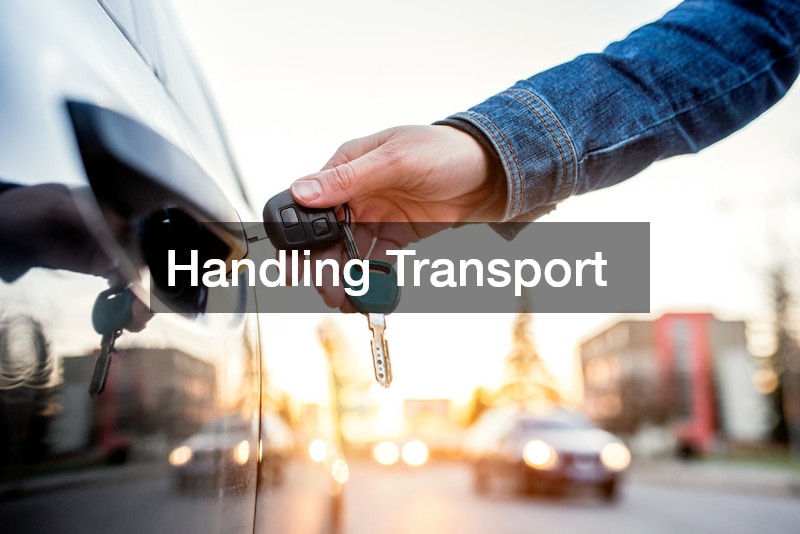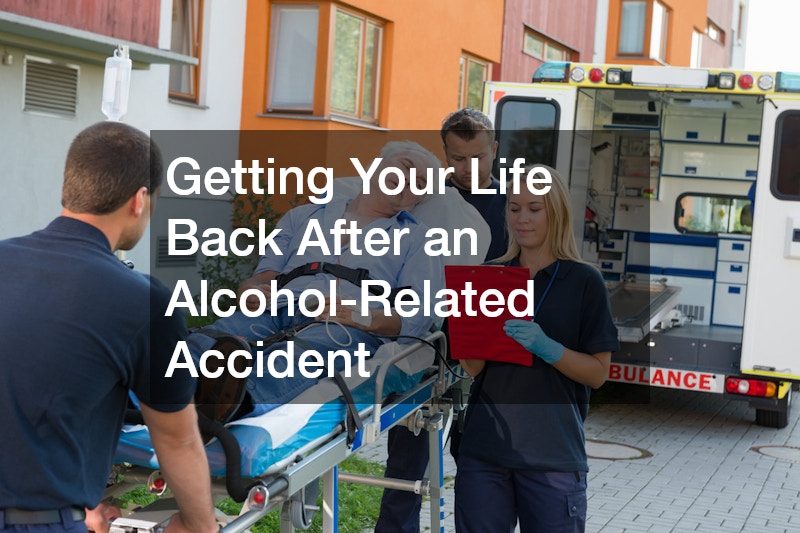Recovering from an alcohol-related accident is not a linear path. Whether you were the driver involved or someone impacted by another’s actions, the aftermath can leave a trail of emotional, physical, legal, and financial challenges. The consequences are often immediate and overwhelming, ranging from medical bills and lost wages to criminal charges and emotional trauma. Yet, amid the chaos, there is a path forward. Getting your life back begins with making sense of your new reality, accepting what has happened, and learning what steps you can take to regain control.
Each stage of recovery is different, and no two journeys look the same. Some people will need to navigate complex legal processes while others may require long-term medical care or support for lasting injuries. For many, finding professional assistance in both legal and personal matters is essential. It’s not just about managing the consequences. It’s taking intentional steps to restore dignity, independence, and peace of mind. The goal is not just to offer information, but to support and empower those who are actively working to rebuild their lives. No matter how severe the incident or its repercussions, there are strategies and resources that can guide you in reclaiming your footing.
This is a roadmap for a renewal that emphasizes resilience, informed choices, and hope. The steps outlined ahead are meant to help you feel less alone and more equipped as you take on the challenging yet entirely possible journey of getting your life back after an alcohol-related accident.
1. Facing the Aftermath

One of the most difficult aspects of moving forward after an alcohol-related accident is confronting the emotional and legal residue it leaves behind. Whether you were responsible for the accident or suffered because of someone else’s actions, the experience can trigger guilt, shame, confusion, or even fear about the future. The aftermath often involves more than just legal concerns—it includes relationships, employment, and mental health. This initial stage is about recognition and acceptance. It sets the tone for everything else.
In cases where charges have already been addressed, some individuals look into clearing their records to start fresh. The process of seeking to remove past offenses from one’s legal record can feel daunting, but it’s a valid part of getting your life back. Having access to an expungement lawyer can influence your ability to secure housing, employment, and a sense of peace.
It’s important to understand that clearing your name legally does not erase the past emotionally, but it can help restore normalcy. It shows a commitment to rebuilding and productively taking accountability. For many, it is not just a legal step—it’s a symbolic one, representing the will to move forward in a life no longer defined solely by one mistake.
2. Understanding the Charges
Understanding the nature of the charges against you—or against someone who caused you harm—is crucial when trying to recover from an alcohol-related accident. These legal matters can be complex and time-sensitive, especially if they involve driving offenses tied to substance use. Misunderstanding the scope or seriousness of the charges can slow progress and increase stress during an already overwhelming time.
Working with a legal professional who specializes in alcohol-related driving offenses helps you better grasp the consequences, possible defenses, and long-term implications. The support from a DWI attorney plays a critical role in getting your life back. Whether facing court dates, license suspension, or other penalties, having informed guidance makes all the difference.
What may begin as a frightening and confusing experience can transform into a period of learning and responsibility. Knowing your rights and obligations under the law doesn’t just protect you—it empowers you to make decisions that align with the future you’re trying to rebuild. Taking that step is a powerful commitment to accountability and personal progress.
3. Help with Release

The period immediately following an arrest or detainment due to an alcohol-related incident is filled with uncertainty. It can be frightening not only for the individual arrested but also for their family and support system. The ability to secure a timely release plays a major role in allowing people to begin taking restorative steps.
Access to quick release options through immediate bail bond services can provide more than just physical freedom. It creates an opportunity to start addressing legal responsibilities and life logistics with clarity. Reuniting with loved ones, attending appointments, and continuing to work on personal improvement are all essential parts of getting your life back.
This stage also reminds us how critical community and support are to recovery. Swift action combined with emotional encouragement can allow someone to reenter their world with greater confidence. While legal issues remain, the first step out of detainment is often the first step toward change.
4. Finding Legal Help
Some alcohol-related accidents lead to long-term or permanent injury. In these cases, navigating both legal and medical systems becomes an overwhelming necessity. When an injury results in reduced physical or cognitive capacity, proper legal representation for disability issues is essential to ensure you are protected and provided for moving forward.
Engaging with professionals who specialize in defending the rights of those with impairments allows you to focus on healing while someone else handles the red tape. Whether you’re filing for support, contesting a denial, or requesting accommodations, this type of legal help is central to getting your life back.
Recovery isn’t just about physical improvement—it’s about reclaiming your place in the world. This can mean access to benefits, job retraining, or housing adjustments. Legal advocates help secure the foundational tools needed to live a fulfilling life, even with new limitations. They bring structure to what can feel like chaos, and that clarity matters immensely in the healing process.
5. Navigating the Courts

The legal path following an alcohol-related accident often involves a sequence of court appearances and formal proceedings. Whether you’re pressing charges, defending yourself, or involved in a civil case for damages, it’s important to understand the structure of what lies ahead. Knowing what to expect helps reduce anxiety and allows you to participate more actively in the resolution of your case.
This is where understanding the civil procedure before trial becomes crucial. From initial filings to pre-trial motions, discovery, and negotiations, each step has specific rules and timelines. Missing or mishandling any part of this process can significantly delay progress. Legal guidance ensures your interests are represented properly and that no important details are overlooked during a time when you may be emotionally or physically compromised.
Taking part in the legal system doesn’t have to feel like losing control. It can be a turning point in getting your life back. Each court milestone marks progress toward closure, and each decision made in preparation is a move toward a stable, post-accident future. Clarity and structure, even when imposed by the court, can serve as a foundation for rebuilding with purpose.
6. Seeking Recovery
For those whose lives were disrupted by their substance use, real change begins with internal work. Treatment is not a punishment. Getting better is a pathway to transformation. Recovery programs at alcohol rehab centers provide a safe and supportive space to address the physical and emotional dependency that may have contributed to the accident in the first place.
Choosing the right alcohol rehab centers involves considering the level of care needed, whether it’s outpatient, inpatient, detox, or long-term residential. These facilities are designed to offer not only detoxification and therapy but also education, skill-building, and relapse prevention. The right center aligns its program with your lifestyle and needs, ensuring the most effective recovery possible.
Investing in recovery is a direct investment in getting your life back. The journey is deeply personal, and no two paths look the same. But committing to sobriety offers a chance to reclaim relationships, employment, health, and confidence. Rehab is not the end of freedom. It’s the start of truly living again.
7. Handling Transport

After an alcohol-related incident, even small details of daily life can become sources of stress, and transportation is no exception. Whether you’ve lost your license, had your vehicle impounded, or are trying to return to normal driving responsibilities, regaining reliable mobility is a major milestone.
One of the logistical pieces that often comes up is renewing or managing your car tag. Ensuring that your registration and documentation are up to date can be easy to overlook amid larger legal issues, but it plays an important role in restoring your independence. Driving again, legally and responsibly, can mark a turning point in your recovery journey.
Taking care of these practical steps is part of getting your life back. They represent accountability and readiness to participate in everyday life again. While it may seem small compared to court dates or treatment programs, having access to your transportation can rebuild autonomy and confidence, helping you move forward.
8. Dealing with Moves
An alcohol-related accident often triggers major life transitions, including the need or desire to relocate. Whether you’re moving to be closer to family, starting fresh in a new city, or transitioning to a more supportive environment, managing a move during recovery can be both logistically and emotionally taxing.
Hiring a reliable moving company can take a significant burden off your shoulders, especially if physical injury, emotional stress, or time constraints are involved. A professional team ensures that the move is safe, efficient, and minimally disruptive to your recovery progress. This practical support gives you space to focus on what matters most—healing and planning ahead.
Relocation is more than a physical shift—it can symbolize a psychological fresh start. Choosing where you live and how you live becomes part of getting your life back. Whether it’s a downsized apartment, a recovery-focused community, or just a better environment for your mental well-being, moving forward—literally and symbolically—often starts with the help of the right hands.
9. Pursuing Fair Claims
If you’ve been harmed due to someone else’s negligence in an alcohol-related accident, you have the right to seek compensation. Financial damages from medical bills, lost wages, or emotional distress can compound an already difficult experience. Having the proper legal support to navigate this is essential.
Connecting with the best personal injury attorney for your situation means you’re not navigating this alone. These professionals fight for your rights, ensure proper documentation, and represent you with clarity and confidence, whether in negotiations or court. Their expertise allows you to focus on getting your life back, not fighting an uphill legal battle.
Pursuing a claim is about more than just money—it’s about justice, closure, and regaining stability. When you feel that someone is standing up for you, it restores a sense of empowerment that might have been lost in the trauma. It affirms your worth and ensures you are not left bearing the full weight of someone else’s actions.
10. Planning What’s Next
True recovery after an alcohol-related accident means not only repairing the past but building toward the future. As you begin to stabilize your life again, emotionally, physically, and legally, there comes a time to look ahead with renewed purpose. That’s where innovation and modern tools come into play.
Exploring cutting edge solutions can reshape your new reality. This might include utilizing digital therapy platforms, installing monitoring tools in your vehicle, accessing mobile legal apps, or using AI-assisted scheduling tools to manage appointments and reminders. These resources support accountability, reduce overwhelm, and help make recovery sustainable.
Getting your life back means preparing for a stronger, smarter future. Embracing new technology and strategies isn’t about erasing the past. It’s about leveraging every possible tool to avoid setbacks and thrive. The future can be one of growth and strength, supported by both the wisdom of experience and the power of modern resources.
Moving Forward by Healing
Getting your life back after an alcohol-related accident is not a simple or quick journey. It is a multi-layered process that touches nearly every area of life. Whether you were behind the wheel or suffered because of someone else’s decision, recovery demands intentional action and consistent support. The trauma of the event can linger, but with time and the right resources, the pain can transform into resilience.
Throughout this article, we explored ten key areas that individuals often confront following an alcohol-related accident. From addressing legal charges and seeking release, to securing proper medical care and finding a safe place to live, each element contributes to the larger picture of rebuilding. The path may not always be linear, and there may be setbacks along the way, but each step taken is a declaration that your story does not end with the accident.
Getting your life back means honoring your journey while refusing to be defined by your worst day. You are allowed to heal, to grow, and to pursue peace, regardless of where your story began. With courage, support, and persistence, life after an alcohol-related accident can be not just possible, but purposeful. The road ahead may require effort, but it also holds the promise of hope and new beginnings.

